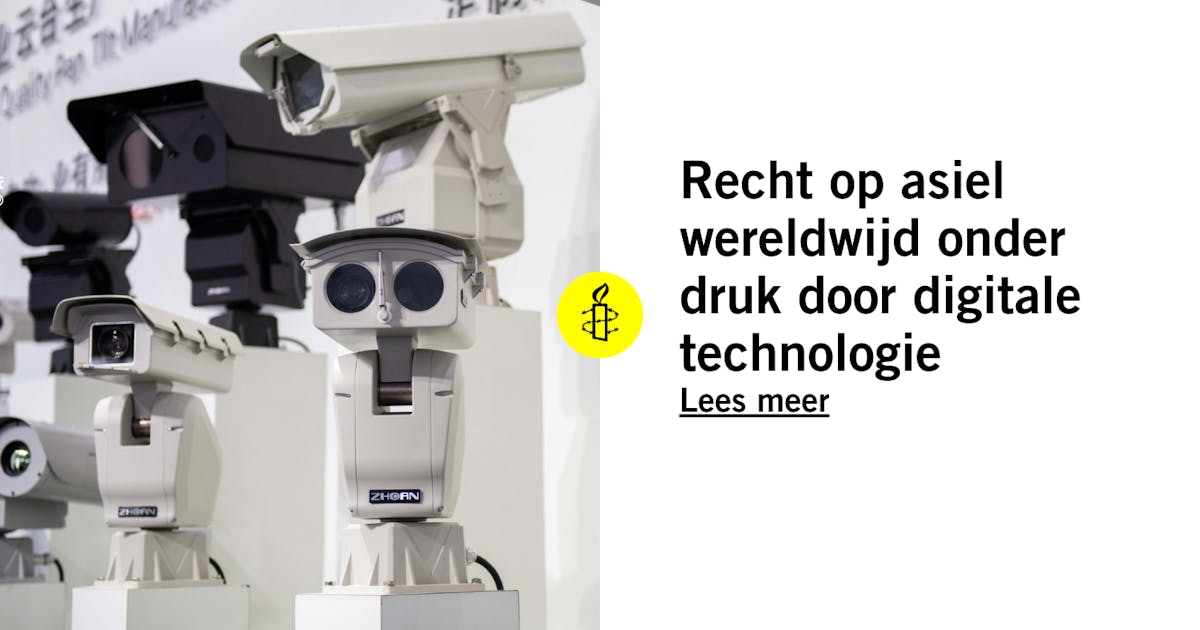The United States, the United Kingdom, and the European Union are using all kinds of digital technologies in their asylum and migration systems. They use data software, algorithms, biometrics and drones at the border. This increases the risk of discrimination, racism and disproportionate and unlawful surveillance. Amnesty International stated this in a report published today.
Report Defending the Rights of Refugees and Migrants in the Digital Era highlights some of the key digital technological developments in asylum and migration management systems and the human rights issues that arise from them. This is especially true for systems that process large amounts of data.
‘This report focuses on the most important developments in the field of digital alternatives to incarceration, including technologies for “outsourcing” border control to third countriesdata software, biometrics and algorithmic decision-making systems,” said Amnesty International’s Matt Mahmoudi.
‘The spread of this technology increases the risk of disproportionate and unlawful discrimination, racism and surveillance.’ Countries use this technology in such a way that the human rights of refugees and migrants are violated.
How digital technology is used
Amnesty’s report describes how governments around the world are using specific technologies for asylum and migration management. Border authorities in the United States implemented an Intensive Surveillance Appearance Program (SUCTION) and the Electronic Monitoring Device Program to observe migrants and asylum seekers released from detention.
However, this technology leads to human rights violations. The report also details the US government’s “smart” surveillance infrastructure, such as AI-powered watchtowers along the US-Mexico border. This increases the risk of profiling of Black, Latino, and other racialized communities.
The United Kingdom requires the use of electronic ankle bracelets. It monitors all foreigners who are threatened with deportation. There is a proposal for facial recognition using smart watches.
Drones and lie detectors
The EU uses drones to carry out surveillance in the Mediterranean Sea to detect refugee and migrant boats. Working with Libyan authorities, the EU is trying to prevent them from reaching European shores.
An EU-funded automated border control system has been tested in Hungary, Greece and Latvia. The project uses an AI “lie detection system” to interrogate people trying to cross the border. The system analyzes the smallest details of facial expressions using facial and emotion recognition technology. People who answer the questions honestly according to the system will receive a code that can be used to cross the border.
Additionally, our report shows how Austria, Belgium, Denmark, Germany, Norway and the UK are increasingly implementing laws allowing the confiscation of asylum seekers’ mobile phones. This makes it possible to check whether what people say during the asylum procedure matches the mobile phone data. If this creates ambiguity, this may impact their asylum application.
Refugees, migrants and asylum seekers are discriminated against
All of these technologies contribute to the exclusion and impede freedom of movement for black, Muslim, and other migrants, asylum seekers and refugees who experience discrimination. They maintain a border security system that discriminates based on race, ethnicity, nationality and marital status.
For example, the EU has actually expanded its borders to the Mediterranean and transit areas in Africa using a series of technologies, so that its every movement can be tracked.
“Racism is deeply embedded in the migration and asylum management system,” said Charlotte Phillips of Amnesty International. ‘This technology is based in part on prejudice, compromising the right to non-discrimination and other human rights.’
Vision Amnesty
Countries must not use technology that violates human rights. There should be a ban on AI systems that recognize human emotions, as well as automated systems in the areas of risk management and profiling. The same applies to predictive technologies that pose unlawful threats to the right to asylum.

“Coffee trailblazer. Analyst. General music geek. Bacon maven. Devoted organizer. Incurable internet ninja. Entrepreneur.”







